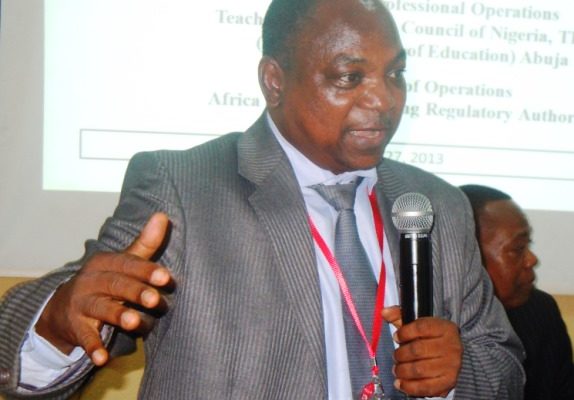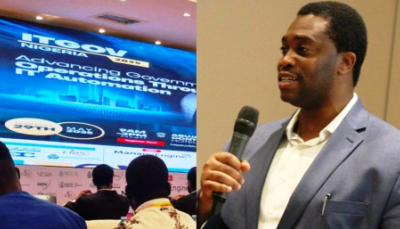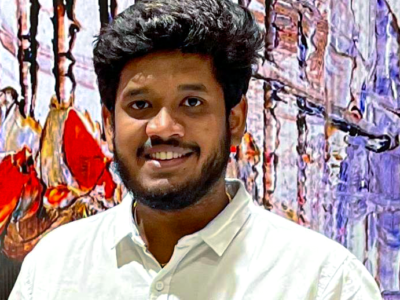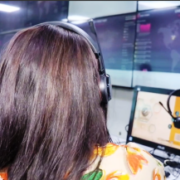Why Nigeria needs an e-learning policy now
In this interaction with the Chairman of Baobab Media, Dr Sola Afolabi revealed at the inaugural West Africa E-Learning Conference and Exhibition organised by Baobab Media in the University of Lagos that eLearning is the next big thing to happen in Nigeria with appropriate policy. He shares with eT Edge News, MARTIN EKPEKE and MOSHOOD ABUBAKAR.
What is the eLearning event all about?
The E-Learning event is organised by Baobab Media in collaboration with the University of Lagos, the Accra Institute of Technology, Covenant University and industry partners to set the tone and set the stage for discussions on E-Learning initiatives, operations, and policies in the Nigeria educational system.
Will you agree that we have a challenge, the population of Nigeria is over 160 million and then we have less than one million students in higher institutions, the physical classrooms cannot take everybody, can we say e-learning is the way to go?
Where there is a challenge, there is an opportunity that is why with the great number of people who would not have access to formal classroom education, e-learning provides photo paste, online instruction in either skills or knowledge, for people who can use the most modern information technologies to get the same kind of instructions, the same kind of education, as can be obtain in the classroom environment. So I see it as an opportunity deriving from this challenge of inadequate classrooms but the bigger challenge that we have seen during this workshop is one of teachers, we do not have enough teachers even for regular education let alone teachers that are going to teach students within an e-learning space.
Definitely we are going to have some solutions from the deliberations here, how is Baobab going to involve the government so that they can carry everybody along?
Baobab has a network of partners as you can see. From the network of this event we have partners in industries, universities and we are going to present a very concise list of recommendations. We are now going to ask our partners to come together and we will provide a platform where we are going to meet the education and information communication technology ministries and their agencies towards helping to create an e-learning policy that will define the roles of stakeholders and the curriculum, presentation, financing, technology and everything that has to do with e-learning. This has been done in other West African countries and we believe that we can borrow this and approach both government and the private sector in moving this agenda forward.
In our environment there is still a kind of apathy towards e-learning; we still appreciate this wall and brick classrooms, how do you therefore envisage the level of acceptance?
I always believe a stranger is a friend that you haven’t met; e-learning is a friend that we need to introduce to a lot more people. One of the objectives of this event is to create this awareness and our other assignments and other events will be able to create more awareness to show that it is not in competition with traditional learning but it is a complement that has possibly reached more than 21 times more than traditional teaching and to ensure the certificates and diploma that are obtained in e-learning have the same credence as the traditional qualifications.
Let me cite a very vivid case during the event, the professor that came from Covenant University cited a case of someone that came for an employment in the institution, he has never been to any formal university, he has B.sc, M.sc, PhD all through distant learning or e-learning as it where and according to him the candidate was turned down, how do you see the commercial viability of such investment in e-learning and at the end of the day nobody is taking you up in the labour market ?
This is why we are talking about policy. If we decide for the policy what constitutes the minimum level of contact, physical contact of the student before he can be awarded a certificate, the case you mentioned possibly didn’t happen in Nigeria because there are other places in the world; in fact, there are places online where you can buy degrees without even studying anything. So those are apart but for Nigeria we want an e-learning policy with the content and delivery certified by NUC and the Computer Professional Registration Council, the Nigeria Union of Teachers, everybody to say if you follow this e-learning for this length of time and with the content that has been approved, whatever qualification you get out of it will be recognised because the institutions themselves will be accredited. It is a matter of standard and policy.
Some people will argue that you have organised this event for the privileged people that are in the city while the majority of the population who are in the villages are still left out – are you thinking towards this direction?
Well we have to start somewhere. We have started here and with our partners and stakeholders they would decide when next and where next and what kind of activities are going to be held. You will discover also that very many of participants came from what you called the rural areas because even in the city, the suburbs of our cities are in most cases rural areas and for this event, we have people from Sokoto, Kano, Ilorin, Ogbomosho from rural areas in very many states and they will be taking our story back to those areas, so when we actually go back to them, they are very already aware of what we have started here. But we have to start somewhere and we have a very e-learning friendly university, the University of Lagos that has agreed to host this event.
There is no e-learning without e-teaching as somebody put it here, how are you going to marry the gap between teachers and students because sometimes you will discover the students know more in terms of technology more than the teachers?
Allow me to say a proverb. ‘A young man can have more clothes than an elder but an elder has more rags.’ These rags constitute the experience and in e-learning, it is now collaboration of both the teachers and the students; they both learn and move forward and that brings again the issue that I raised earlier of the quality and quantity of teachers that are able to deliver e-learning instruction – that is the big problem. If we are able to produce a mass of such teachers then that gap will be reduced because even the teachers will have the basic knowledge and competence in computing before and also of teaching and a good teacher is a good teacher, it doesn’t matter what you ask them to teach.





























